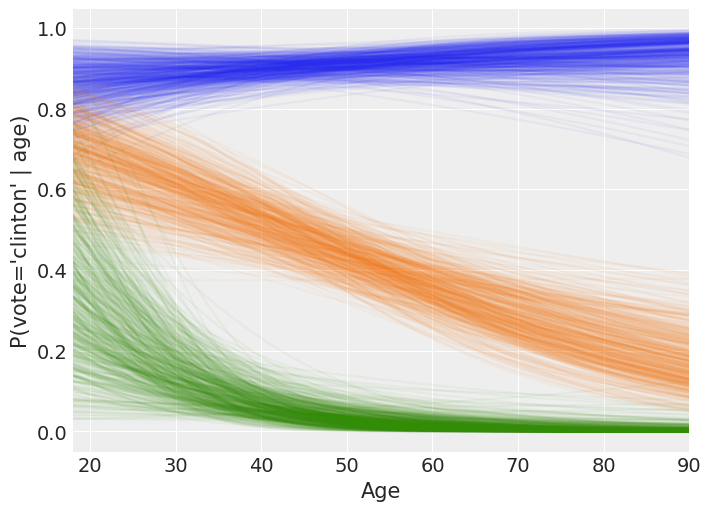Community#
ArviZ is a community-driven open source project committed to host an open, inclusive and positive community. Read the ArviZ Code of Conduct for guidance on how to interact with each other and make the community thrive.
Our main goal is to provide backend-agnostic tools for diagnostics and visualizations of Bayesian inference.
We do this by:
Creating and maintaining the ArviZ library with functions for posterior analysis, data storage, sample diagnostics, model checking, and comparison.
Creating social infrastructure through a welcoming and diverse community
Making the right data, tools and best practices more discoverable
Promoting advocacy for a culture of principled iterative modeling based on the Bayesian Workflow
This page aims to gather resources related to Bayesian modeling and ArviZ from a variety of sources to work towards the 2nd and 3rd bullet points. This page covers how can someone participate in the ArviZ community (this someone could be you!), gives an overview of the ecosystem of Python libraries for Bayesian analysis and serves as a compilation for community resources around ArviZ.
But what is the ArviZ community? The ArviZ community is a self-identifying group composed of probabilistic programming practitioners who, together, contribute to the technical and social infrastructure for open and reproducible research. Our specific focus is on Bayesian modeling and best practices that lower the barriers to working using a fully fledged Bayesian modeling workflow, as opposed to a rigid toolbox approach.
Community members are people who use, cite and share use cases for ArviZ, write posts or give talks about using ArviZ, participate in issues to help define the roadmap and improve the project, or answer questions in any of the affine forums.
This page is part of the Python ArviZ library and is therefore specific to Python, but the ArviZ community is not restricted to Python and in fact, aims to act as a bridge between programming languages and encourage collaboration.
Participate online#
There are many alternatives and channels available to interact with other ArviZ users.
Twitter#
To begin with, you may want to follow us on Twitter! We are @arviz_devs. It is the best way to be up to date with the latest developments and events related to ArviZ.
Gitter#
The chat at Gitter is a great space to ask quick questions about ArviZ and to chat with other users and contributors. For longer questions, the Discourse forums listed below are probably a better platform.
Affine forums#
Many ArviZ contributors are also active in one of PyMC3 Discourse or Stan Discourse (and sometimes even in both!).
Conferences#
The Bayesian Python ecosystem#
In the last years, many libraries for Bayesian data analysis have been created, and there is a slight tendency towards more modular libraries. ArviZ plays an important role in this ecosystem both as the go-to library for visualization and diagnostics in Python for any and all PPLs and as a way to standardize and share the results of PPL libraries.
The PPLs that integrate with ArviZ are:
Moreover, there are other libraries that use ArviZ for visualization and diagnostics
and/or that are compatible with InfereceData objects:
Community educational resources#
ArviZ is a transversal and backend agnostic project. One can use ArviZ with any PPL, but one has to be used in order to have some data for ArviZ to analyze. This makes writing detailed and complete documentation for ArviZ complicated. This section aims to act as a compilation of community resources related to ArviZ that hopefully can bridge the gap. These can be books, case studies in the documentation of PPLs, personal blogs…
Do you know of resources about ArviZ that are not listed here? Open an issue or a PR and let us know!
Books#
Bayesian Modeling and Computation in Python: available soon
Podcasts#
Blogs and example compilations#
If you have a blog that has 2 or more posts tagged as “ArviZ”, you can submit a pull request to add your blog to this list


